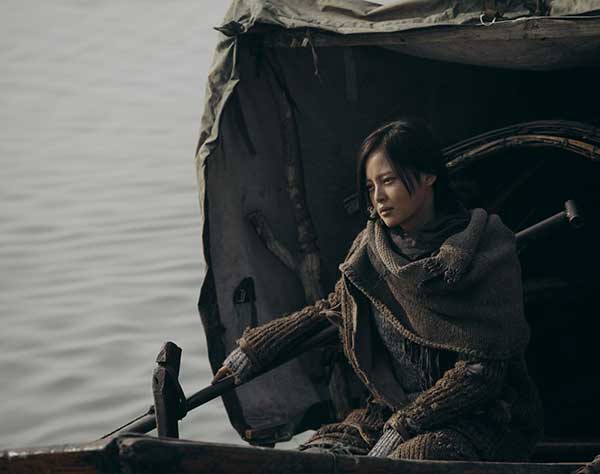 |
|
A scene from Crosscurrent.[Photo/China Daily] |
Giving an example, Yang says that some German viewers liken the mysterious woman to sirens, lethal yet beautiful creatures in mythology who lure nearby sailors.
Interestingly, while the crew may not have encountered any mysterious creatures during the film shoot, the film did "lure" some wandering artists, says Yang.
The shoot, which took 63 days, used three boats: a four-floor cruise ship for accommodation, one shattered hull of a boat shown in the movie and another vessel with the cameras.
Artists, singers and poets living in cities along river boarded the cruise ship, and there were cultural discussions with them every night.
"Most of the artists are my friends. We contacted them before the filming. They made the shoot more interesting," says Yang.
Director Wang Xiaoshuai, who won the Berlinale Silver Bear awards twice-in 2001 for Beijing Bike and in 2008 for In Love We Trust-says China's lack of interest in art-house cinema makes this "the worst era for serious movies".
His comments came when his award-winning art-house drama Red Amnesia got just 1.3 percent of screen time last April.
Typically, a highly anticipated commercial tentpole gets at least 30 percent.
Sha Dan, a curator of the Beijing International Film Festival, says that while most European and North American markets have special cinema chains for art-house titles, China has very few such theaters.
For now, Crosscurrent will likely focus more on overseas markets.
Wang Yu, the producer, expects the movie will see around 30 to 40 percent of its box-office receipts come from abroad.